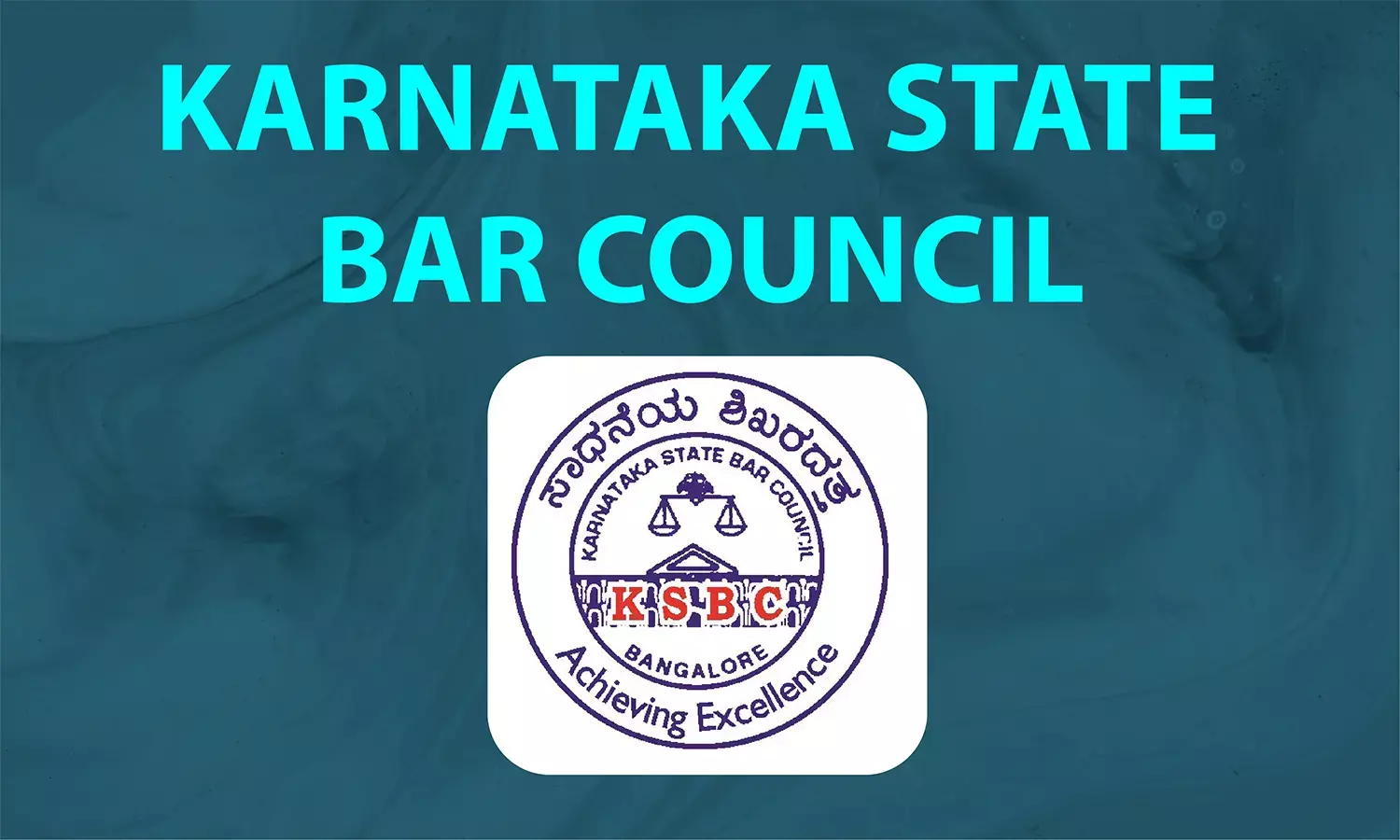Karnataka State Bar Council Writes To CJI & Law Minister Calling For Inclusion Of Local Judges In High Court Collegium
In separate letters addressing the Chief Justice of India (CJI), DY Chandrachud, Prime Minister Narendra Modi, and Law Minister, Arun Ram Meghwal, the Karnataka State Bar Council has called for the inclusion of judges whose parent High Court is Karnataka, in the Collegium of the Karnataka High Court.
The letter dated September 12, written by Bar Council Chairman Vishala Raghu H.L., highlights the absence of any such judges in the current Collegium and raises concerns about the impact on the state's legal landscape.
Currently, the three senior-most judges of the Karnataka High Court comprising its Collegium were transferred from other High Court. Chief Justice N. V. Anjaria's parent High Court is the Gujarat High Court. The senior most puisne Judge, Justice V. Kameswar Rao was transferred from the Delhi High Court and the second senior most puisne judge, Justice Anu Sivaraman, who was transferred prior to Justice Rao, is from the Kerala High Court.
Tracing the historical significance of Karnataka’s judiciary, the letter notes the evolution of the judicial system in the region, from the appointment of the Board of Commissioners in 1831 to the elevation of prominent judges from the Karnataka High Court, such as former Chief Justices of India E.S. Venkataramaiah, M.N. Venkatachalaiah, S. Rajendra Babu, and H.L. Dattu. Despite this rich history, the Bar Council has expressed concern over the current composition of the High Court’s Collegium, which lacks representation from judges whose parent High Court is Karnataka.
"Drawing ourselves back to the subject under reference, it has come to our notice that the current Collegium of the Honble High Court of Karnataka does not include any judges whose parent High Court is Karnataka. While we hold the highest regard for the distinguished judges serving in our High Court from other States, we respectfully express our concern regarding the absence of representation from judges who have roots and a deep understanding of the legal traditions, customs, and nuances specific to State of Karnataka," the letter read.
The Bar Council emphasized the unique understanding that local judges bring to the judiciary, particularly their familiarity with the customs, traditions, and legal nuances specific to Karnataka. “Judges whose parent High Court is Karnataka bring with them an intrinsic understanding of the unique legal landscape of the state, informed by years of practice and experience within its jurisdiction,” the letter reads, adding that such insights are crucial for balancing local legal challenges with broader national jurisprudence.
The letter also highlighted the importance of maintaining the confidence of both the legal community and the public in the judiciary, stating that the inclusion of local judges would bolster trust in the judicial process. It further stated that appointing Karnataka-rooted judges to the Collegium would acknowledge their dedication to the state's judiciary and their deep understanding of practical legal issues faced by its citizens.
"Their insights are invaluable in maintaining the balance between the diverse legal challenges that arise in the State of Karnataka and the broader jurisprudential framework of our nation. This balance is crucial for fostering a judiciary that is not only impartial but also deeply connected with the local populace it serves. Furthermore, the inclusion of such judges in the Collegium would bolster the confidence of the legal community and the public in the judicial process, reinforcing the perception that the High Court is attuned to the specific legal, cultural, and social fabric of the State of Karnataka. It also serves as a recognition of the contributions and professional development of judges who have dedicated their careers to the judiciary in Karnataka," the Bar Council letter read.
While acknowledging the complexities of judicial appointments, the Bar Council respectfully urged that this concern be considered in future appointments. The Council expressed confidence in the wisdom of the judicial authorities to ensure that the High Court of Karnataka remains reflective of both the diversity and unity of India’s judicial system.
"We are aware of the complexities involved in judicial appointments and the multitude of factors that the Collegium considers. However, we respectfully urge that this aspect be given due consideration in the ongoing and future appointments to the High Court of Karnataka. In this regard, we place our trust in your office wisdom and discretion to take steps that would address this concern, ensuring that the High Court of Karnataka continues to reflect both the diversity and unity of our judicial system and consider our request to include the judges in the collegium whose parent High Court is Karnataka since regional judges know about the deep root of practical issues. We express our profound gratitude for your attention to this matter and remain hopeful that our humble submission will be considered favourably," the letter stated.




